In Years 1 and 2, the children continue their learning through a careful balance of topic-based and specific subject teaching. Our topics are adapted or changed each year to keep a fresh perspective and give opportunities to keep the learning exciting, stimulating and relevant. Topics are typically driven by a historical or geographical focus but we link other subjects to the termly theme wherever possible.
Year 1 & Year 2 Academic
ART
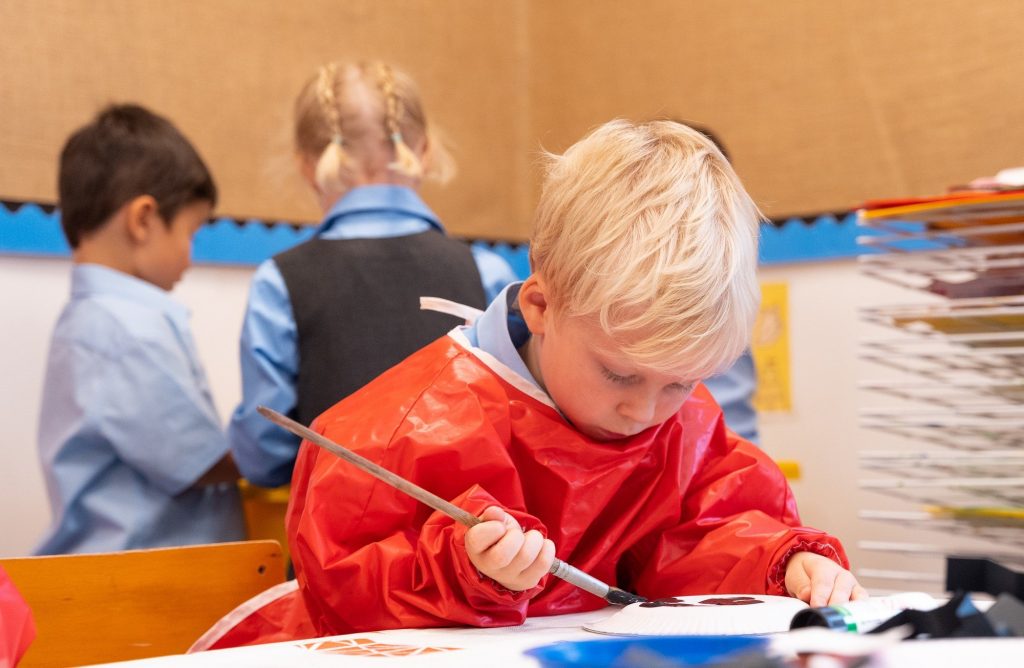
ART
Art activities encourage children to develop their imagination and demonstrate their creativity in a variety of ways. Pupils develop skills in drawing, painting, textiles, printmaking, sculpture and ceramics. Within these areas, they are encouraged to explore the qualities found in line, tone, colour, pattern, shape and form.
In Years 1 and 2 Art enables children to explore a wide range of media and experiment with different techniques. For Year 1 pupils, Art is taught in the classroom by the class teachers. In Year 2, the children receive their Art lessons with our specialist Art teacher in the dedicated Art studio.
We aim to engender an appreciation of arts and crafts from history and from diverse cultures from across the globe. We link much of the work we do to the themes that are covered during our topic work. For example, in Year 1 children have experience of weaving, painting, clay work and collage to support the curriculum topics. The work in Year 2 has included creating mixed media pictures of Antarctica, making their own versions of Willow Pattern plates and having a go at African style printing.
The children also enjoy making Christmas crafts and cards and have many wonderful opportunities to explore other subjects through art activities.
COMPUTING
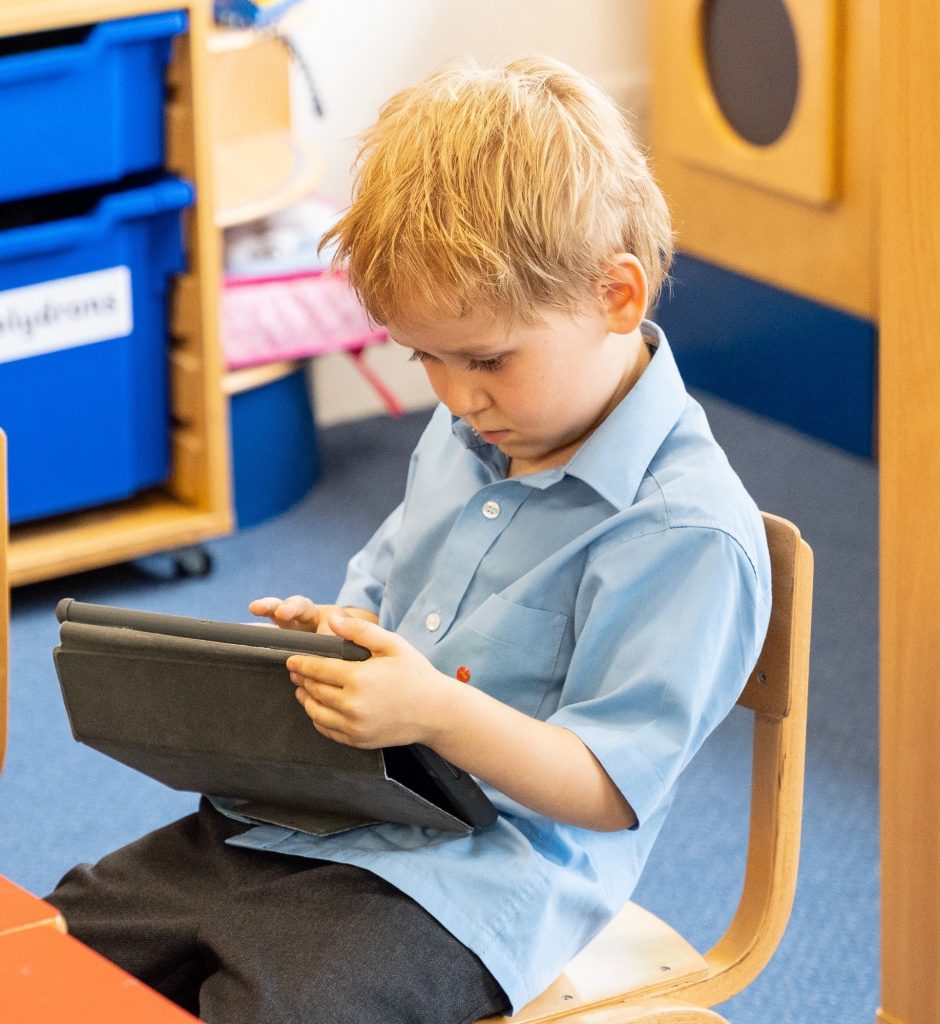
COMPUTING
We believe that a high quality computing education equips children to use computational skills effectively in an increasingly technological world.
At RPS, our Prep pupils receive computing lessons in our ICT suite as well as through the use of iPads in the classroom setting, linking with other curriculum subjects.
Pupils are introduced to a wide range of fun and engaging software. They learn how to produce electronic books, create pictures through the use of art programs and take photos.
They learn to use algorithms to program digital devices such as Beebots and move on to creating their own simple programs using software such as Scratch Junior.
As children progress, they learn the skills to save and retrieve their work on the school system. They identify uses of ICT in and out of school and use iPads effectively to research other areas of the curriculum.
They develop an understanding of the need to keep safe online, including how to search the internet safely and links are made with PSHE lessons about digital wellbeing.
DESIGN TECHNOLOGY
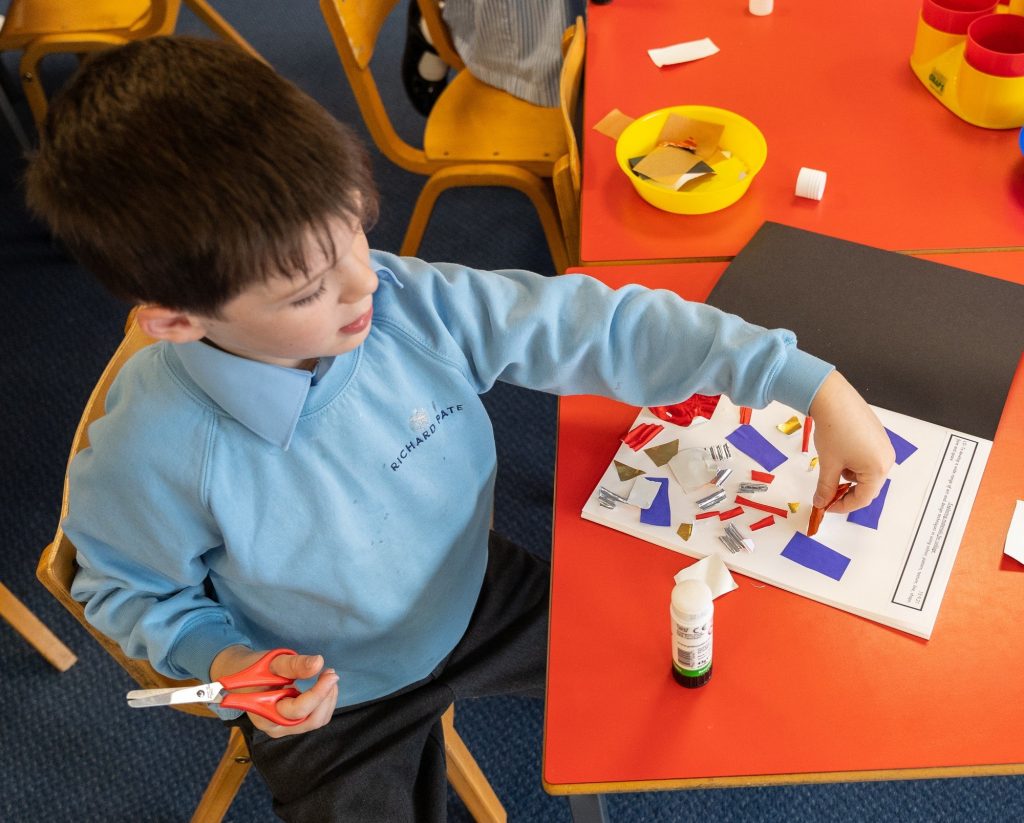
DESIGN TECHNOLOGY
Design and Technology activities are practical and creative, encouraging invention and imagination in our pupils. Children enjoy finding solutions to problems and are taught basic skills to develop and make their designs. They continue to develop skills and techniques involved in cutting, joining, shaping and finishing in order to make effective models.
They use a variety of materials and construction equipment to make structures and mechanisms as well as selecting ingredients to make food products.
Pupils work on projects individually or in groups to find solutions to problems and bring their ideas to life. Work is typically linked to our topic work and examples in recent years have included making vehicles, space ships, bridges, sliding pictures and creating healthy mini pizzas.
ENGLISH
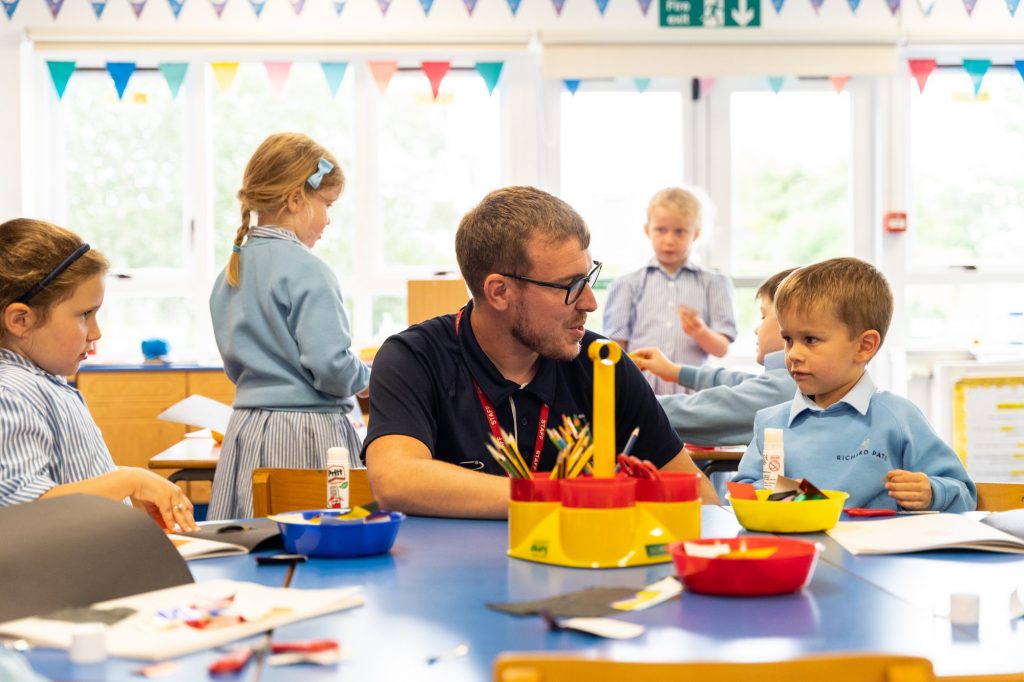
ENGLISH
The key skills of reading, writing, speaking and listening are fundamental to all areas of school life and underpin all other areas of the curriculum. In Prep the children develop confidence in all of these areas through an engaging English curriculum based upon a range of high quality fiction, non-fiction and poetry texts.
We consider a love of reading to be an essential life skill and we strongly promote reading at RPS. We have a well-stocked reading scheme through which children progress at their own rate, supported by well-informed and experienced class teachers and teaching assistants. Each classroom also has a book corner housing a huge range of books which children can access daily. In addition, they often hear stories read to them by adults in class or during assemblies. The Letters and Sounds programme is taught in Prep with phonics continuing as the main strategy for word reading. Children also develop comprehension skills by responding to texts and answering questions. By the end of Year 2 most children are fluent, capable readers who demonstrate an excellent understanding of the books they read.
Throughout Years 1 and 2 weekly spelling tests are carried out to reinforce keywords and spelling patterns that are taught in class through the Letters and Sounds scheme. Children learn to form letters neatly and consistently. They begin to join their letters in Year 1 and by the end of Year 2 they join fluently, showing pride in their writing. Pupils learn basic punctuation and grammar as well as developing their use of vocabulary within their own writing. They learn to write their own texts with increasing complexity and show ambition in their word choices. Children in Prep have many opportunities to develop their speaking and listening skills. They contribute to class discussions, ask and answer questions, collaborate with others during group activities and present items of interest to the rest of their class. In Prep the children are also involved in narrating and performing to different audiences including Christmas shows.
FRENCH
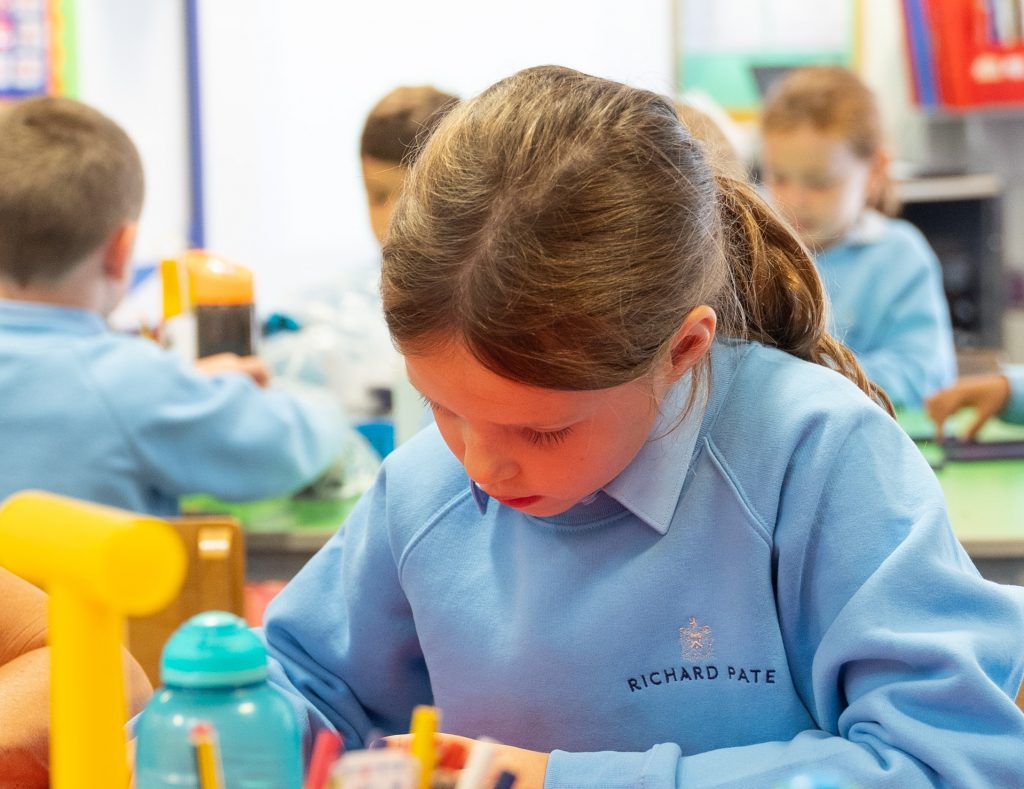
FRENCH
Children in Year 1 learn French within the classroom setting. They learn simple words and phrases through a range of fun and engaging speaking and listening activities. In Year 2, the children receive one French lesson each week with our specialist French teacher in a dedicated classroom. The learning becomes a little more formal, although the focus continues to be speaking and listening. They also work through some simple reading and writing activities all designed to build confidence and enjoyment of the subject. Children learn how to talk about themselves and learn basic vocabulary such as colours, some animals and family members.
GEOGRAPHY
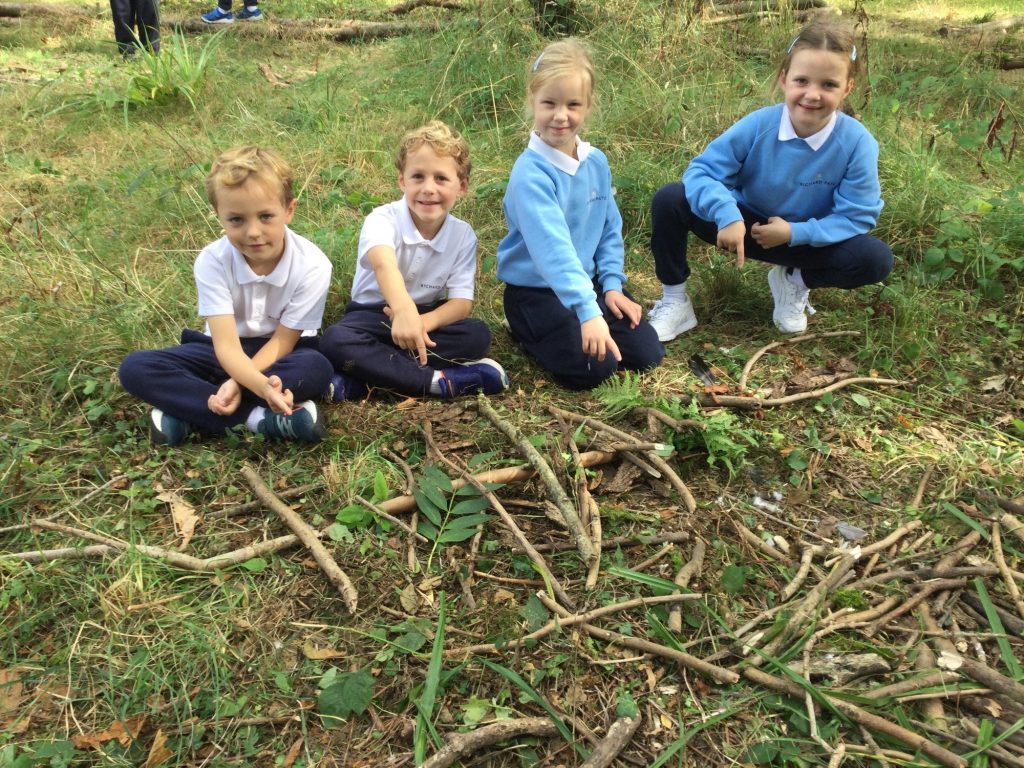
GEOGRAPHY
Geography is covered through our topic work. We aim to spark a sense of wonder and fascination in the local environment, the UK and the wider world through our engaging topics. This is achieved through practical work, school visits, outdoor exploration and classroom study.
The curriculum is based on the Geography National Curriculum programme of study but is adapted and extended to ensure our pupils receive a relevant and challenging curriculum. Children build their understanding of place, identifying human and physical features whilst observing similarities and differences between different localities.
A wide range of geographical themes are studied including The Rainforest, Our Wonderful World and Journeys. Children build their understanding of place, identifying human and physical features whilst observing similarities and differences between different localities.
Children record their learning in a variety of ways and use appropriate geographical vocabulary to describe and compare places. They learn the value of respect when studying different countries and cultures as well as develop an understanding of how human actions affect the planet.
HISTORY
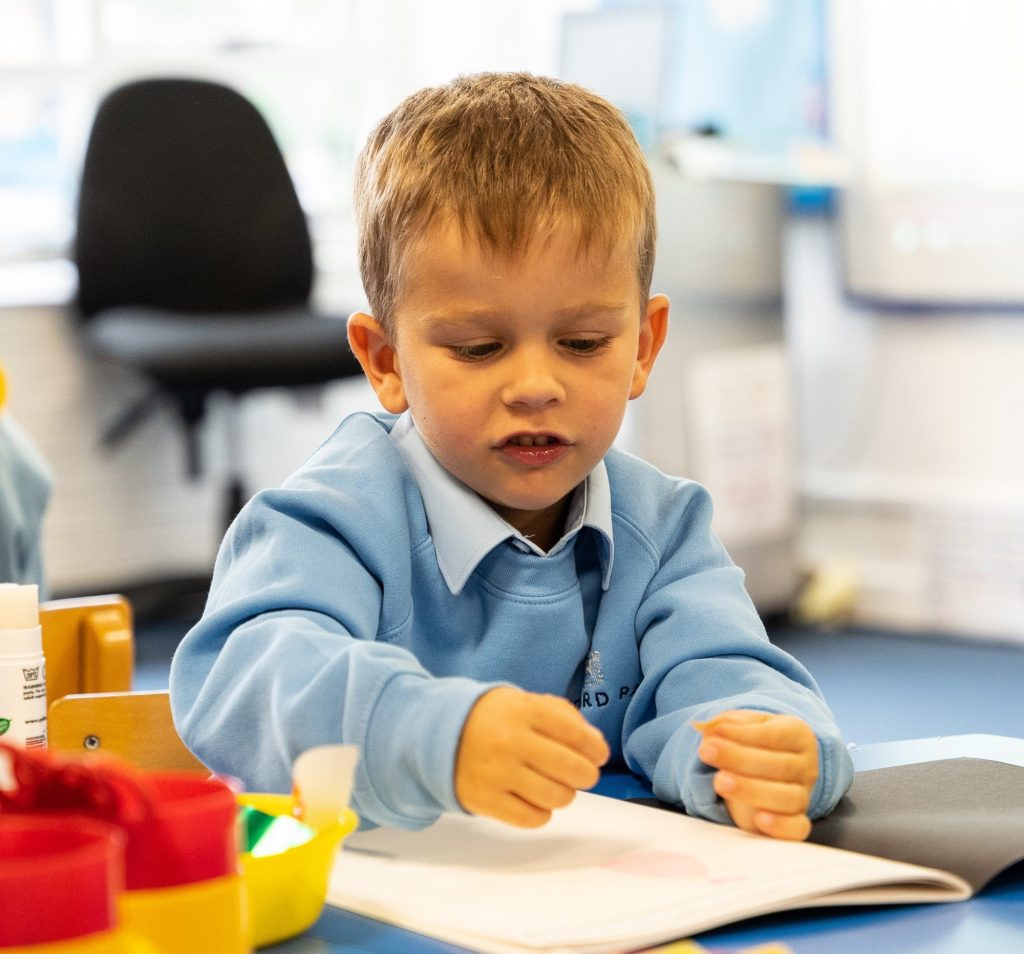
HISTORY
History is covered during topic work. We aim to foster a lifelong interest in History through exploring and investigating different historical themes.
The children in Prep learn about significant events and people from the past as well as changes in ways of life within living memory. They learn to ask questions about the past along with investigating historical artefacts and sources. Children begin to understand how historical events fit into a broad chronological framework and identify similarities and differences between ways of life at different times.
Recent topics have included Toys, Castles, The Great Fire of London, Ernest Shackleton and Transport in the Past.
Children confidently articulate their learning in History using historical words and phrases. They record their work through writing, pictures, models and ICT. Opportunities are also created to use drama and role play within lessons to bring the learning alive.
MUSIC
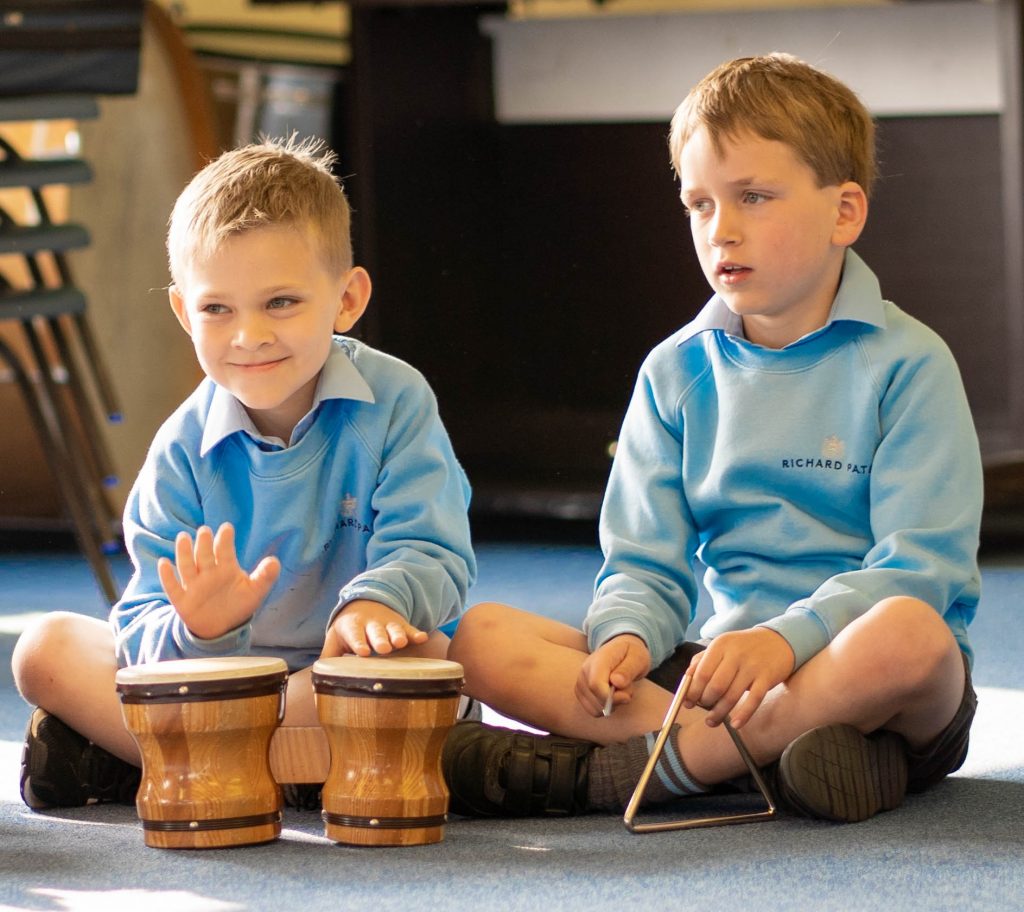
MUSIC
Children in Prep have one music lesson each week with our Director of Music. They learn to explore the musical elements through themes that are often related to our class topics. They learn to sing a wide variety of songs and play a range of musical instruments confidently.
Music must be accessible to all, a chance to develop new skills individually, collectively and above all else fun. We provide a structured core music curriculum for all children that will allow children to enjoy and participate in active music-making. They will develop an understanding of musical concepts and cultivate practical skills, enabling them to respond and communicate musical ideas, thoughts and feelings.
Music lessons are delivered through creative, practical and hands on teaching that centres on singing, performing, composing, listening and appraising.
We understand the importance of providing the children with access to live performances and engaging visiting musicians as well as music workshops and school trips, making full use of the outstanding opportunities Cheltenham offers. In addition, we run extra-curricular activities for example Prep choir and recorder club.
For pupils who are committed to instrumental study we offer a wide range of peripatetic lessons.
We provide many opportunities for budding musicians to perform in solo and ensemble performances. These include assemblies, lunchtime concerts and concerts on and off site.
For every age group, we teach knowledge, skills and understanding of music. The teaching units are progressive and linked to curriculum topics where possible; for example, linking composers and genres to history and cultures.
By the end of Richard Pate, we hope that all our pupils will develop an understanding and enjoyment of a broad spectrum of musical styles, and become confident singers! Music lessons are really important in developing personal qualities such as concentration, memory, responsibility, self-criticism and improvement, and commitment to long-term goals. But above all else we want our pupils to learn to appreciate music on their own terms, whether they actively pursue it or simply listen to it.
PE
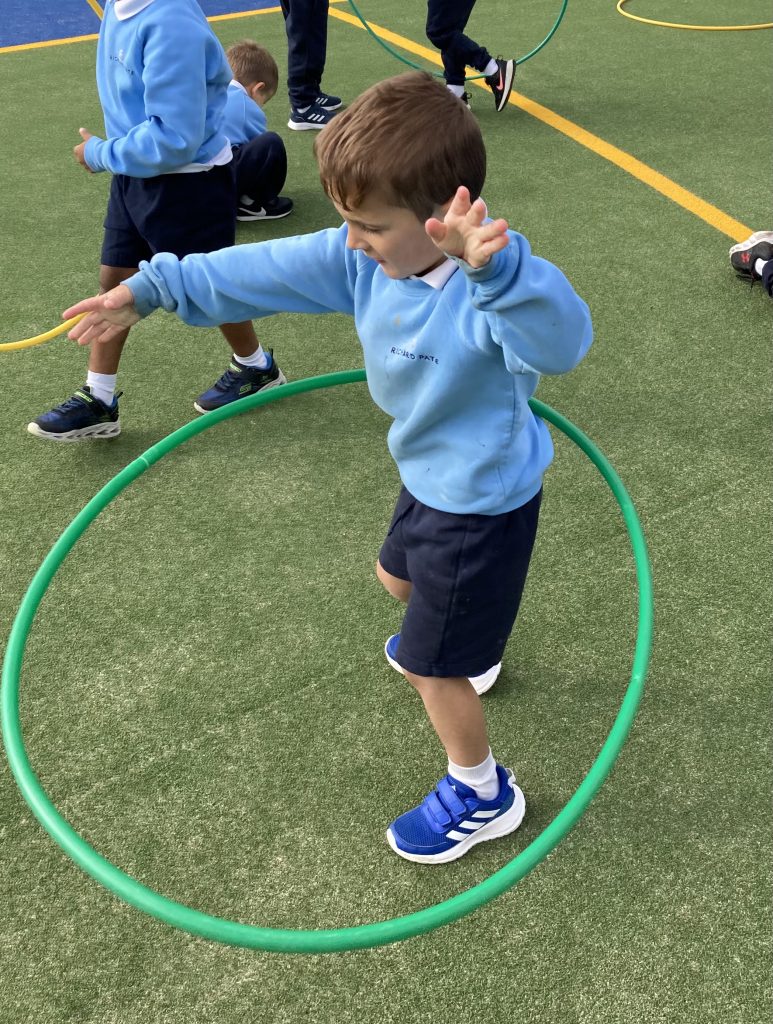
PE
At RPS we place a strong emphasis on physical activity through PE and Games and this begins in the Prep Department. We aim to ensure that children enjoy taking part in physical activity and understand the importance of being active and healthy as part of their everyday lives.
Children receive structured lessons each week and are encouraged to participate at a level which suits them. Activities in Prep include: dance, gymnastics, athletics, and games skills. Lessons take place in the hall, on the astro pitch and the field. Children learn basic multi-skills as well as a range of health and fitness activities. The skills of balance, agility and co-ordination, are taught through carefully planned and engaging activities. They learn how to move safely and develop team skills through collaborating with others.
We celebrate pupil achievement in PE during our annual Prep Sports Day event where children take part in competitive and fun sports activities.
PSHE
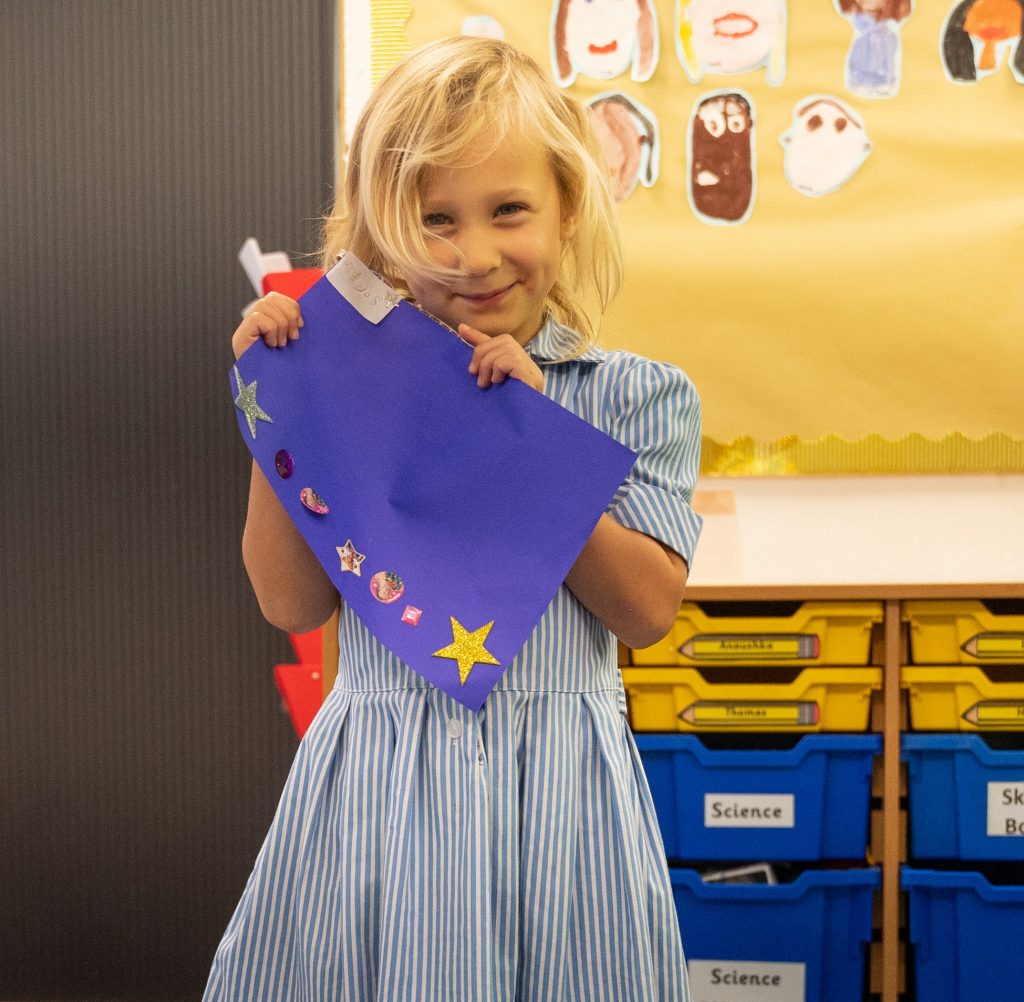
PSHE
In our Personal, Social and Health Education lessons, we aim to provide pupils with the knowledge, understanding, attitudes, values and skills they need in order to become healthy, independent and responsible members of society. In addition, we want the children to develop the skills to become confident, well-rounded individuals with a good understanding of the world. Our PSHE curriculum covers three main strands:
- Relationships
- Health and Wellbeing
- Living in the Wider World
The children experience a focused lesson each week relating to one of the themes but we also make use of opportunities that arise during the school year to explore other relevant issues. PSHE themes are also covered during assemblies and within other subject areas.
They learn about British values and how they relate to our everyday lives. We encourage pupils to reflect on their own experiences and discuss key issues in a safe and supportive environment. During their time in Prep, they are encouraged to take responsibility for their behaviour and learning and become increasingly independent. They are taught how to respond with respect and empathy towards others and see how their own actions affect others around them. Children learn about important people in their lives and how to keep safe in a variety of situations.
SCIENCE
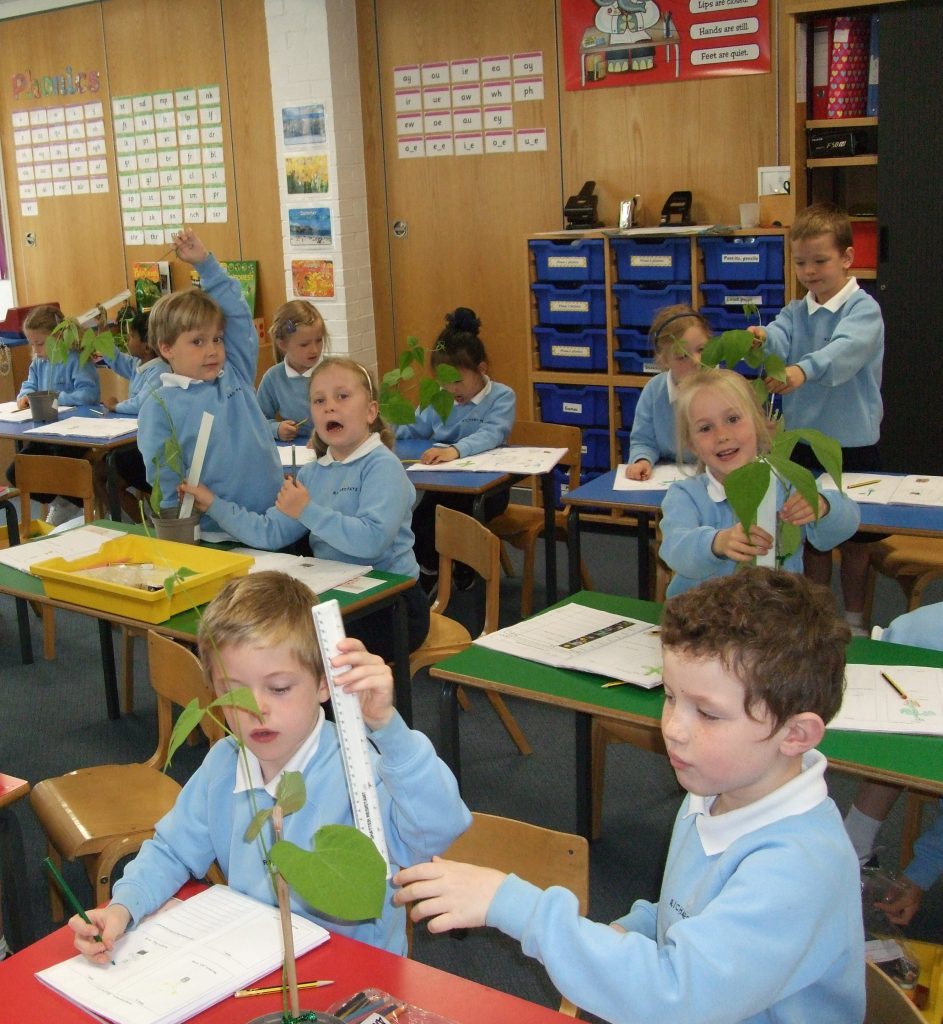
SCIENCE
Science is taught through individual topics in blocks of learning. We aim to build upon pupils’ natural curiosity and encourage a respect of the world around us.
Children enjoy plenty of practical investigation and use is often made of our extensive grounds and woodland in carrying out scientific enquiry. By the end of Prep children will have experienced working scientifically to investigate and explore the world around them, whilst building knowledge of key scientific skills and concepts.
Our topics are outlined below:
Year 1 – naming plants and describing their structure; identifying, naming and describing animals; naming and describing everyday materials; seasonal changes
Year 2 – exploring living things and their habitats; describing what plants need to grow; describing how animals and humans grow; identifying ways in which materials are used
Children record their work through a variety of means including writing, ICT, photos and artwork such as painting, drawing and collage. They often work collaboratively when exploring and investigating, suggesting ideas and presenting their findings with confidence.
MATHS
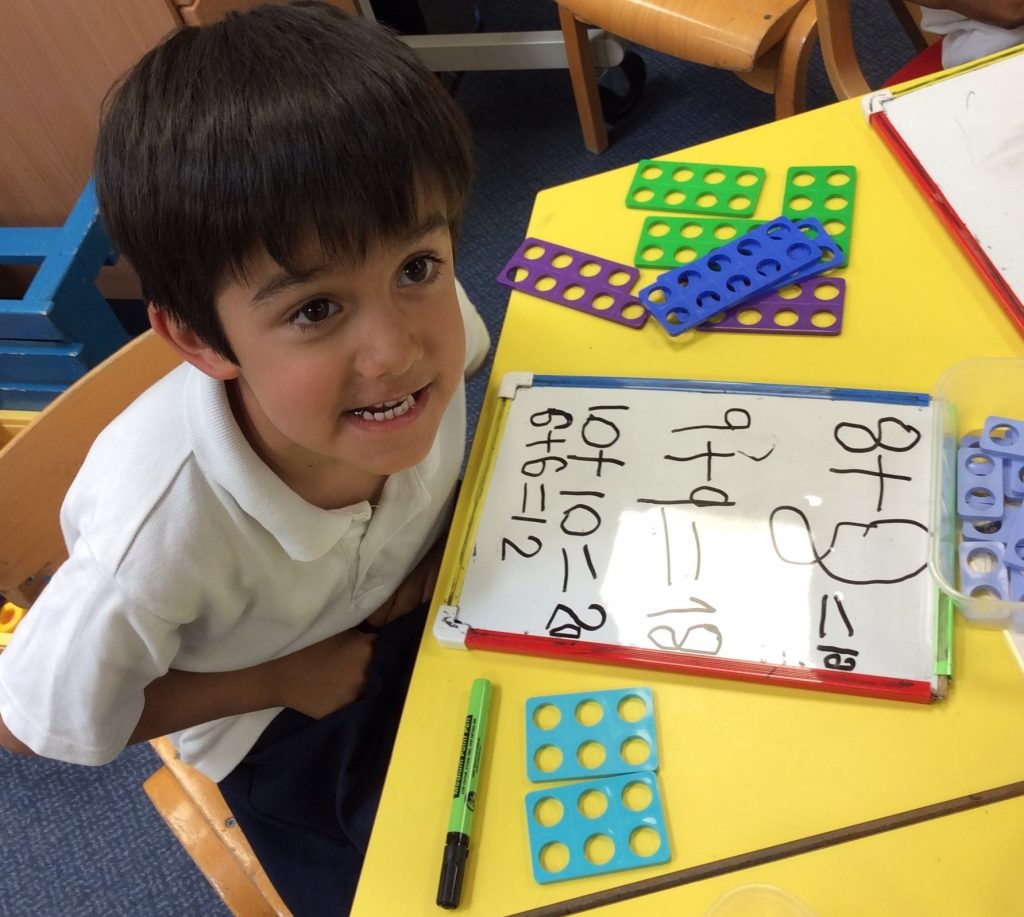
MATHS
We aim to foster enjoyment and confidence in maths through teaching which is practical and fun. We follow the National Curriculum and the Mastery in Maths approach to learning which identify the three elements of fluency, reasoning and problem solving in learning mathematical skills and concepts.
In Maths children build their understanding of numbers and learn basic skills in addition, subtraction, multiplication and division. They experience a balance of practical and written activities, learning to develop fluency in mathematical concepts as well as solve problems in real-life contexts. They explore measurement, fractions, shape and position and direction. They learn to work with money including solving problems.
We believe in a positive mindset and aim to provide an environment in which children are prepared to have a go and tackle mathematical problems and challenges.
In all lessons, children experience active learning and are fully involved. They are expected to explain their thinking and use talk to develop mathematical understanding. Children use a range of practical equipment and new concepts are introduced through concrete methods to ensure a thorough understanding at the earliest stages. As children become more proficient, they move on to using pictorial and finally abstract methods. Children also have opportunities to use ICT effectively to enhance lessons, playing games and using iPad Apps to reinforce learning.
We subscribe to the online learning resource, Mathletics, which allows children to reinforce their mathematical understanding at home through fun activities.
RE

RE
In Prep the children learn knowledge, skills and understanding through studying the faiths of Christianity, Judaism and Islam. By providing rich and varied experiences, we aim to promote tolerance and respect towards others as well as a sense of awe and wonder in the world.
The RE Curriculum in Prep is based mainly on the Gloucestershire Agreed Syllabus with children studying units of work relating to different themes and faiths. Pupils respond by answering and asking questions and they use a wide range of activities such as writing, art, music and ICT to record their thinking.
Themes covered in Years 1 and 2 are outlined below:
Year 1: Parables of Jesus; Christmas; Judaism; Easter; Belonging; Creating the world
Year 2: Ideas about God; Christmas; Islam; Easter; Special Places; Caring for others and the world
We also celebrate special religious occasions through assemblies and other class activities where many children and families enjoy sharing their faith with the school community. Children learn to respect other cultures and faiths and begin to develop an understanding of how faith affects the way people live their lives.

